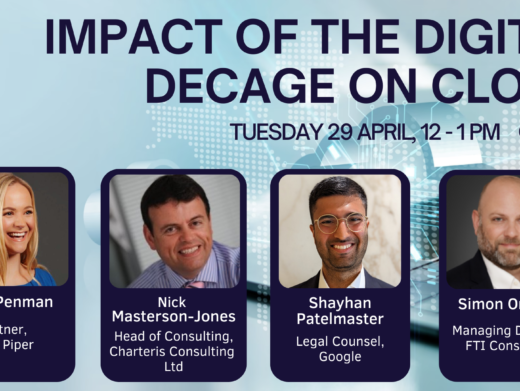Advocate General Øe has issued an opinion in Joined Cases C-682/18 Frank Peterson v Google LLC, YouTube LLC, YouTube Inc., Google Germany GmbH and C-683/18 Elsevier Inc. v Cyando AG.
According to the Advocate General, under current EU law, online platform operators, such as YouTube and Uploaded, are not directly liable for illegal uploading of protected works by users of those platforms.
However, right-holders may obtain, under EU law, injunctions against those operators.
The Digital Copyright Directive (2019/790) introduces, for online platform operators such as YouTube, a new liability regime specific to works illegally uploaded by the users of such platforms. However, it does not yet apply to the cases at issue (and for UK readers, the UK government has indicated that it does not intend to implement it).
Therefore, the Court of Justice must decide the case based on Directive 2000/31 on electronic commerce, Directive 2001/29 on the harmonisation of certain aspects of copyright and related rights in the information society and Directive 2004/48 on the enforcement of intellectual property rights.
Facts
In first case, a music producer brought proceedings against YouTube and its parent company Google regarding the uploading to YouTube, in 2008, of several phonograms to which he claimed to hold various rights. The material was uploaded by users of that platform without his authorisation.
In the second case, the publishing group Elsevier brought proceedings against Cyando regarding the uploading to its file-hosting and -sharing platform Uploaded, in 2013, of various works to which Elsevier held the exclusive rights, the uploading similarly taking place without authorisation.
The German courts referred several questions to the Court for a preliminary ruling.
Opinion
The AG proposed that the Court rule that operators such as YouTube and Cyando are not directly liable for an infringement of the exclusive right of authors, as recognised under Directive 2001/29, to communicate their work to the public, when users of those operators’ platforms illegally upload protected works.
According to the AG, operators such as YouTube and Cyando do not, in principle, carry out an act of ‘communication to the public’ themselves in such a case. The role they play, is, in principle, that of an intermediary providing physical facilities which enable users to carry out a ‘communication to the public’. Any ‘primary’ liability arising from that ‘communication’ is therefore borne, as a rule, solely by those users.
The AG noted that the process of uploading a file to a platform such as YouTube or Uploaded, once initiated by the user, is automatic, without the platform operator selecting or determining in any other way the content that is published. Any, possibly automated, check made in advance by the platform operator is not constitute selection to the extent that the check is confined to identifying illegal content.
The Advocate General further noted that Directive 2001/29 is not intended to govern ‘secondary’ liability, that is, the liability for facilitating third parties to carry out illegal ‘communications to the public’. That liability, which generally involves knowledge of unlawfulness, comes under national law.
In addition, platform operators may, in principle, benefit from the exemption from liability under Directive 2000/31 for the files they store at their users’ request, as long as they did not play an ‘active role’ which would give them ‘knowledge of, or control over’ the information in question. The exemption provides that the provider of an information society service, which consists of the storage of information provided by the recipient of the service, cannot be held liable for the information so stored, unless, upon obtaining knowledge or awareness that the users’ information or activities are illegal, it has not expeditiously removed or disabled access to that information.
According to the AG, that exemption applies to any liability that online providers may incur in relation to any kind of information stored at the request of the users of their services, whatever the source of that liability, the area of law concerned and the characterisation or exact nature of that liability. Therefore, it covers both primary and secondary liability for the information provided and the activities initiated by those users.
The AG stated that this does not apply when the service provider has ‘actual knowledge of illegal activity or information’ or is ‘aware of facts or circumstances from which the illegal activity or information is apparent’ refer, in principle, to specific illegal information. Otherwise, there would be a risk of platform operators becoming judges of online legality and a risk of ‘over-removal’ of content stored by them at the request of users of their platforms to the extent that they also remove legal content.
The AG also proposed that the Court rule that, notwithstanding the question of liability, right-holders may obtain, under EU law, injunctions against the operators of online platforms, which can impose obligations on them. Right-holders must be able to apply for such an injunction where it is established that third parties infringe their rights through the service provided by platform operators, without the need to wait for an infringement to take place again and without the need to show improper conduct by the intermediary.




